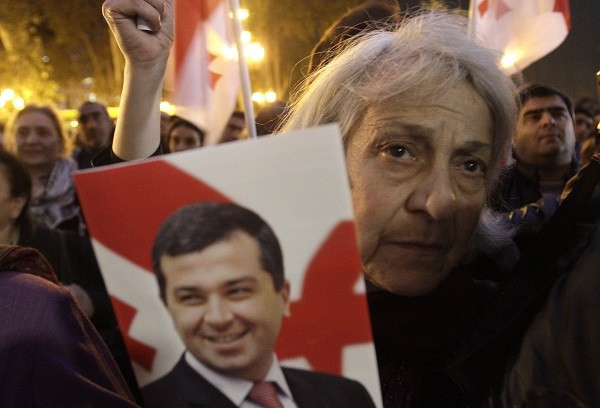Why Georgia's Elections Should Inspire the Whole of Europe

In 2003, after power outages and food shortages became unbearable, the people of Georgia went to the streets to protest and brought us the first of the revolutions that have swept the world over the past 10 years. As a result we received President Saakashvili and his young team of reformers.
Now, 10 years later we go to the polls to choose our next president. And this will be a first. The same way parliamentary elections in October last year were a first. You see, we have never done so at the polls. Before last year government and leaders in Georgia changed by the voice of the people on the street. And this is why the world should care about Georgia.
In a region where presidents remain presidents for many decades, where rigging at the polls is common practice, where corruption is a way of life, Georgia has managed to escape, to find the right path to democracy.
This is a big problem to some. When you're telling your citizens that at home democracy is not an option, that being a post-soviet country means giving bribes to traffic police and standing for days in line to receive a birth certificate or a driver's licence, having one of your neighbours break those rules shakes up your whole system. All of a sudden your citizens start asking questions. If Georgia could do it, why can't we?
During the soviet era everyone talked about the US as a land of wonders, anything and everything seemed possible there. We imagined Malboro man riding his horse into dusk, and it looked heavenly. In recent years Georgia has become that unknown but awfully desired place. A land of wonders with its glass police buildings, native English teachers in every school and laptops in every kids backpack.
This westernisation, democratisation, liberalisation, and any other isation that Saakashvili or someone on his team could come up with, needed to be stopped. So in 2006 we got an embargo on all agricultural products including wine (never mind that the same wine received Grand Prix status at the international wine competition in Hong Kong). But we worked through the embargo and instead diversified our export markets with the EU, becoming the biggest importer.
When embargo didn't work, we got a war. Full military invasion which resulted in 20% of our territories being occupied by Russian forces. Our economy was destroyed (not to mention the number of lives lost). But we got up on our feet again and for the last three years the economy grew at an average annual rate of 6.5%. In the end Putin realised that only one alternative remained.
On 5 October 2011, the richest man in Georgia, Boris (Bidzina) Ivanishvili announced that he was going into politics. Hitherto unknown to the wider public, Boris made his fortune in the 90s Yeltsin-era Russia. Nicknamed "anaconda" by the rest of the oligarchs, Boris managed to acquire valuable real estate in the 1km radius from the Kremlin and later became the biggest private shareholder of Gazprom. A year after announcing his political ambitions Ivanishvili's party won the parliamentary elections in Georgia.
He promised to improve relations with Russia, invest millions of dollars of his own savings into the agricultural sector, increase pensions and decrease utility fees but in the end all we got was a drastic drop in economic growth (2.5% expected by year end), demonstrations against the LGBT community that turned violent, aggression towards religious minorities and new installations of barbed wire fences by Russian army troops across the administrative borders of the occupied territories (in some of the villages cutting through people's yards and gardens).
And this is a list of "normal" issues. In addition we now have a newly-elected PM that decided to resign after Presidential elections. "I will quit politics and will engage in more difficult and more needed processes and that is development of the society", Ivanishvili stated. Although he promised to appoint a worthy candidate instead of him, and to control his political party from the shadows. This is every oligarchs dream of course and some, like Berezovsky, even managed to attain it for short periods in time.
So you see we have a lot to work on in Georgia but as Bruce Springsteen once told me through the headphones of my ipod (Seeger Sessions, 2006) "we shall overcome this". And we will. The same way we overcame the embargo and the war, we shall now overcome temptation for illusionary billions offered by the Russian oligarch and go back to building our country. But in the meantime readers need to remember that Georgia is important, not only because of the recently discovered 1.8 million-year-old skull (Dmanisi, Georgia) that could lead to re-evaluation of current theories of human evolution, but because Georgia is a beacon of hope for so many others waiting to cross over from dictatorships to democracies.
Vera Kobalia is a Georgian politician who served in the cabinet of Georgia as the country's Minister of Economy and Sustainable Development from July 2010 to 25 October 2012.
© Copyright IBTimes 2025. All rights reserved.



















